Organic chicken manure fertilizer is a powerful and sustainable solution to improve garden soil fertility. This blog discusses the various advantages of using poultry droppings, which include essential nitrogen, phosphorus, and potassium, found in its nutrient-rich composition that nourishes plants. However, through awareness of composting and correct application methods, gardeners can benefit from this organic amendment while minimizing risks such as nitrogen burn. Moreover, this article will look at comparative insights showing why chicken manure is superior to other organic fertilizers and provide practical advice on how it can be safely incorporated into different types of gardens. This information has been presented here for seasoned farmers or beginners so that they can know how to use organic chicken waste products correctly for healthy sustainable plants in their gardens.
What is Chicken Manure Fertilizer?
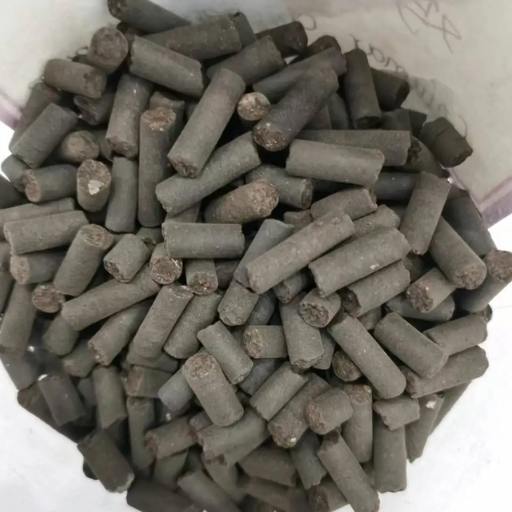
Chicken manure fertilizer is made by using organic soil improvement from chicken droppings. It is highly respected for being rich in nutrients, typically containing about 1.5% nitrogen,1.0% phosphorus and 0.5% potassium as well as various trace elements important for plant growth. On the other hand, unlike artificial fertilizers, chicken manure supports healthy soil through improving soil structure and increasing water retention capacity while also encouraging useful microbial action. For the garden to be safe and productive, it is necessary to compost chicken manure properly to kill pathogens and prevent nitrogen burn.
What are in Chicken Manures?
Chicken Manures have a wide array of vital plants nutrients it contains. Its ingredients include approximately 1.5% Nitrogen (N), 1% Phosphorus (P) and 0.5% Potassium (K), commonly known as N-P-K abbreviation form or acronym These macronutrients play various roles in plants: nitrogen promotes leaf development and chlorophyll production, phosphorus is involved in energy transfer and root formation, while potassium enhances overall plant healthiness against diseases.
In addition to these macronutrients, chicken manure also contains some micronutrients, such as calcium, magnesium, and sulfur, which are essential for forming compounds used by animals during metabolism or construction purposes. Calcium (Ca) forms the cell walls needed for structural support; magnesium (Mg) forms the active site of photosynthesis machinery called chlorophyll; and sulfur (S) helps form certain amino acids and enzymes.
The actual composition of chicken litter can vary due to factors such as feed consumed by chickens, bedding material used or how it is handled before spreading on the field someday Therefore it is necessary to do occasional soil testing together with manure testing so as to accurately gauge the application rates based on nutrient needs of crops at specific periods
How is Chicken Manure Fertilizer Made?
Chicken manure is turned into fertilizer through composting, ensuring safety and nutrient efficiency. The first stage involves the manure collection, which is then mixed with carbonaceous materials such as straw or sawdust to maintain a C/N ratio of about 25-30:1 (carbon-to-nitrogen). This equilibrium is vital for optimum microbial activity and decomposition effectiveness. The compost pile must attain thermophilic temperatures between 130-150°F (54-65°C) for several days to kill pathogens and weed seeds. Regularly turning of the pile every 1-2 weeks ensures proper aeration and uniform decomposition. Moisture content should be maintained at about 40-60% to encourage microbial activity without promoting anaerobic conditions. On average, composting takes around 6-12 weeks before resulting into durable organic fertilizer that can be applied on soils rich in nutrients Periodical tests for things like pH (ideally should be between 6.0 -7.5), electrical conductivity and nutrient levels will determine whether or not it meets specific requirements for safe application in gardens and agricultural fields.
Is Chicken Manure Organic Fertilizer?
Chicken manure is an organic fertilizer because it originates from natural animal waste products that are later composted while retaining the integrity of organic materials This type of manure falls within the limits stipulated by organic farming regulations, which demand that fertilizers shall come from natural sources without chemical additives being used at all costs. The presence in chicken litter after composting it reveals its worth as far as soil enrichment with nitrogen, phosphorous & potassium does not raise environmental concerns unlike chemical fertilizers do.
Benefits of Using Organic Chicken Manure in Gardening
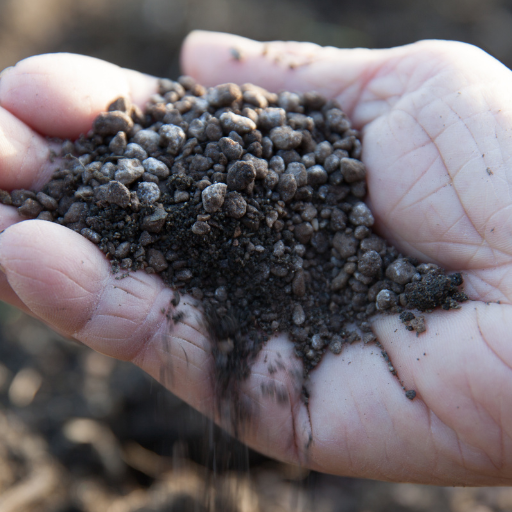
Gardening and planting crops with organic chicken bedding is very advantageous. It has a complete nutrient profile of which nitrogen, phosphorus and potassium content is relatively high as compared to other plants in the kingdom – being essential nutrients that all plants must contain within them for their better growth. The nutrients are released gradually into the soil, hence enhancing slow fertilization and improving plant resilience and yield. On top of this, it also improves soil structure increasing its water holding capacity and aeration. This organic matter supports beneficial microbial activity in the soil promoting good soil health. Also, when properly composted, it helps suppress pests and diseases that come from the soil, making a garden healthier.
What are some reasons to use organic chicken manure in your garden?
Several scientifically-backed benefits of using organic chicken manure in one’s garden explain why many gardeners prefer this option. Firstly, it offers a full complement of essential nutrients, including nitrogen (N), phosphorous (P), and potassium (K) at substantial levels. Agricultural data show that chicken manure typically contains about 1% N, 0.8% P, and 0.5% K on average by weight making it a balanced choice for ensuring healthy plant development since plants require these three major elements in large amounts.
The third advantage is long-term improvement to soil structure and fertility through the application of this product, where the presence of organic matter and micro-organisms from composted chicken manure improves its ability to hold water as well as allow free airflow into the ground, leading to increased root penetration thereby producing healthy plants overall. These desirable properties make gardening greener because improved conditions of soils lead to less irrigation requirements plus no need for artificial conditioners.
Lastly, chicken manure stands out from synthetic fertilizers due to its environmentally friendly nature and being a renewable resource, especially when considering gardening practices carried out by various people. Therefore, unlike chemical inputs that may destroy beneficial soil organisms and have negative effects on the future fertility of soils, chicken manure is a renewable resource. Moreover, proper composting of chicken manure reduces risks for pathogens and weed seeds hence safe fertilizer utilization.
So, using this organic matter in gardening is strongly supported by its high nutrient levels, contribution to building better soils, and encouraging sustainable practices mostly connected with organic farming principles and ecological responsibility.
How do you get organic nutrients from chicken manure?
Chicken manure releases organic nutrients through its nitrogen content, among other essential elements like phosphorus and potassium. These nutrients are slowly released during decomposition so they are always available for plant uptake through root systems. Decomposition involves microbial activity breaking down the organic matter into forms that plants can utilize. Thus, continuous release of nutrients from this source increases soil fertility over time, leading to stronger plant growth. Additionally, it supplies secondary nutrients (Calcium, Magnesium, Sulphur) and trace elements necessary for overall plant health and soil quality improvement. In addition to enhancing microbial activity and improving soil structure, however, chicken manure serves as a holistic conditioner towards long term agricultural sustainability.
Can you use this to improve the soil amendment using chicken droppings?
Certainly! Chicken dung can be used as an effective soil amendment. It boosts soil organic matter while improving its structure since it contains high quantities of essential macronutrients like nitrogen(N), phosphorus(P), potassium(K). Furthermore, it helps retain water within the topsoil while promoting air circulation under the ground, resulting in efficient moisture management and root development. Therefore by delivering important things as different minerals needed in plants’ growth besides modifying land’s texture; this product definitely supports sustainable agriculture.
How to Compost Chicken Manure Correctly
Correctly composting chicken manure requires several critical steps to ensure it becomes a safe and effective soil amendment. Begin by collecting fresh chicken dung and straw or wood shavings as bedding material. Create compost piles, including alternating layers of manure and carbon materials like leaves or garden waste to maintain balanced nitrogen levels. Turn the pile regularly for aeration purposes, a process that helps break it down further while controlling odours simultaneously. Temperature monitoring is crucial; the heap should attain at least 130-150°F to terminate any harmful bacteria and weed seeds. Typically, the complete breakdown and eradication of pathogens takes six months to one year during composting processes. Once fully decomposed, manure should appear dark and crumbly meaning it is ready to improve soil fertility.
What are some ways through which chicken’s excreta can be used as compost?
- Collection and Preparation: Gather fresh poultry droppings with litter materials such as straw or wood shavings, which provide carbon balance in the high-nitrogen-rich droppings.
- Layering: Construct a composite pile by alternating manures with dry leaves, garden wastes, or sawdust that have high carbon-carbon ratio contents that are necessary for optimal composting.
- Aeration: Sometimes, turn over the compost regularly, say every two weeks, to aerate it since this helps break down organic materials in the presence of oxygen.
- Temperature Monitoring: Check if your pile rises above 55°C (131°F) but below 65 degrees Celsius (149°F), so that you don’t let its temperature exceed 150 degrees Fahrenheit (65°C). A special thermometer designed to check internal temperatures inside composts will be useful.
- Moisture Control: The pile should be kept damp but not soggy and feel like a wet sponge when squeezed. This will support decay through microbial action.
- Decomposition Period: Allow the compost to decompose fully, which usually takes six months and a year. Composting is done when material turns black, crumbles easily and smells like soil.
How long does chicken manure compost take?
The period that chicken manure takes to decompose through composting depends on various factors, such as the size of the heap being used, the composition of the heap, and how it is managed. Usually, if turned regularly for aeration purposes and maintained within optimal temperature and moisture ranges, it may take about 6-9 months before the dung can be completely rotted. However, with proper management characterized by frequent turning and consistent monitoring, this can be reduced to 4–6 months. On the other hand, if carefully tended with minimum frequency of management, then it might go up to one year or more before getting ready.
What are some dangers of using fresh droppings?
Several risks are associated with the utilization of raw droppings; through this way, infection by dangerous microorganisms, including Escherichia Coli (E.coli), Salmonella typhi (Salmonella), or Listeria monocytogenes leads to contamination of food crops, hence posing health hazards could occur in soils. Also, fresh manure contains high concentrations of ammonia and salts, thus capable of burning roots, leading to poor germination rates among seeds planted in them . Furthermore, high nitrogen content in fresh manure causes nutrient imbalance that could induce excessive vegetative growth at the expense of fruiting/flowering. Most importantly, though, weed seeds come along.; they thrive once sown side by side with cultivated plants, leading to stiff competition for nutrients from the host crop, thereby reducing its productivity.
Application Methods for Chicken Manure Fertilizer
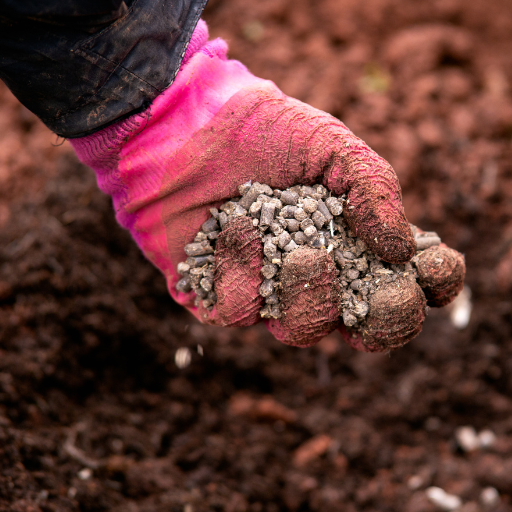
Chicken manure can be applied in several ways to ensure that nutrients reach the soil most beneficially. One of the many methods is by composting the manure before tilling into the soil prior to planting. This also enhances slow release nutrition as well as improves soil structure. Another way of doing this is making tea out of composted manure and then using it to water plants directly through pouring it at their base so that absorption can take place very fast as it occurs. Lastly, chicken manure pellets are becoming popular because they are easily handled and applied over time, and nutrients are released evenly. To avoid nutrient imbalance and possible root burn, adherence with recommended application rates is vital.
How do I use chicken manure for highly nutritious gardens?
The first step towards having pathogen-free chicken manure is to put it under composting to kill any potential pathogens while at the same time stabilizing its nutrient content. The process usually takes around six months where natural heat generated during composting helps eliminate harmful bacteria. Once this has been done, chicken manure should be added to the soil in fall or at least four months before harvesting crops to comply with food safety guidelines. Lastly mix the compost into your topsoil which should go down about 6-8 inches deep so as to help enhance its structure by allowing nutrients get dissolved within it for better absorption by plants’ roots during feeding periods. Alternatively, one may opt for Chicken Manure Pellets, which are subjected to heat treatment, eliminating all pathogens before being spread on lawns or planted directly into soils at home garden sites without further treatment, especially due to the ease of handling them while applying them on their soils . Over-fertilization and root burn will be avoided if you follow advice given about how much product exactly needs there: usually 20 pounds per 100 square feet (determined according). If you have come into contact with fresh or dried chicken manure, always wash your hands and put on gloves.
What is Side Dressing and How Do I Use It?
It is a method of fertilization where nutrients are applied on the soil surface or just below it near growing plants during the growth period. This helps provide the required substances at the exact time that the crops need them with increased demand. The application of side dressing generally consists of evenly spreading fertilizer along rows while keeping it at least a few inches away from plant stems in order to prevent root damage. Lightly till (mix) or work the fertilizer into the soil to make nutrients more available and minimize loss through nitrogen volatilization when it is still moist enough for easy penetration by the roots. Such actions such as watering or irrigating must be carried out so that water can be used to enhance nutrient uptake through immediate wetting of soil after adding nutrients, which should then taken up by plants via their roots (as applicable). You could also consider using urea or ammonium sulphate if you’re looking for popular nitrogenous fertilizers to use for side dressing. Always refer specific crop requirements and recommended application rates for optimal plant health and productivity.
Best practices for putting organic matter around trees and shrubs
Putting organic matter around trees and shrubs is essential to improve soil health and facilitate robust plant growth. Start by removing all the grass or weeds found in the drip line of a tree or a shrub to reduce competition for nutrients and water. Organize between 7-10 wordings for this last sentence, using synonyms but retain the same meaning. Spread about two to four-inch thick layer of organic matter like leaf mold, compost, well-rotted manure, etc., evenly around the bottom part of the plant outwards up to its drip line. Remember that the trunk need no contact with this organic material because it can otherwise cause decay and sicknesses. Mix up the organic stuff in some inches of topsoil so gently without straining the roots a bit. Mulch down with 2-3 inches deep wood chips or barks to keep in moisture, regulate soil temperatures and lower weed germination rates in future. Add more organic matter every year if you want to keep fertility and structure intact
Common Questions About Organic Chicken Manure Fertilizer
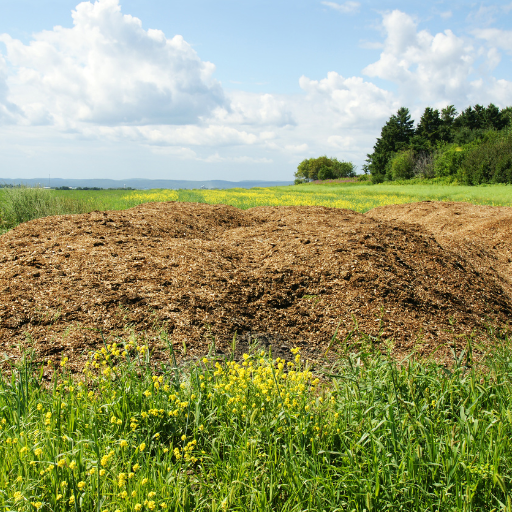
Organic chicken manure fertilizer has several advantages for soil health and plant growth. It provides plants with a range of nutrients, including nitrogen, phosphorous and potassium. However, it should be well composted before applying to reduce the risk of pathogens and burning of roots due to high nitrogen levels. Soil that contains composted chicken manure has improved its structure and moisture retention is also promoted apart from supporting beneficial microbial activity. The best practice is to apply approximately 1-2 pounds per 100 square feet then work into the soil before planting. Always wear gloves when handling any manure-based fertilizers and wash hands thoroughly after use for more safety.
How to Store Chicken Manure Safely?
- Composting: Before storage, ensure that chicken manure has been fully prepared through composting.Composting can help kill dangerous pathogens and make the nutrients available for the plants.This process usually involves keeping the manure at about 130-150°F (55-65°C) for at least three days and then curing at lower temperatures for some weeks.
- Storage Container: A well-aired container that does not leak, such as a plastic bin with a top or compost tumbler, should be used. If kept outside, the container should be strong enough to withstand harsh weather conditions.
- Location: Place the container in a dry, cool area out of direct sun rays to avoid making the manure too soggy or dry during storage and to prevent pests from being attracted.Avoid having it near any water body, as this could lead to contamination.
- Anaerobic Conditions: Do not seal all airtight containers holding manure since they may cause anaerobic conditions, which can result in bad smells and even the formation of poisonous substances.Good ventilation is required.
- Duration: Stored manure should be used within six months to a year. Overextended storage periods can decrease nutrient levels, particularly of nitrogen, which may volatilize as ammonia.
- Safety Measures: Protective gear like gloves and masks should always be worn when handling chicken manure to avoid bacteria and dangerous gases. After every handling session hands and clothes have to be washed clean.
Can Chicken Manure Burn Plants?
If not well handled, chicken manure can burn plants mainly because it has high nitrogen content. Freshly applied chicken manure is characterized with high amounts of ammonia that are detrimental to plants. Here are some key technical parameters and considerations:
- Nitrogen Content: Chicken manure usually has approximately 1.1%—1.7 % total nitrogen by weight. Too much nitrogen for plants causes burns on leaves or damage on roots, resulting in “fertilizer burn.”
- Carbon-to-Nitrogen (C:N) Ratio: The ideal C:N ratio for composted manure is between 20:1-30:1; fresh chicken manure often contains lower C:N ratios that lead to rapid release of nitrogen leading to plant burns if directly applied.
- Ammonia Levels: Fresh chicken manure releases huge amounts of ammonia which can be toxic to plants.Proprietary composting this type of fertilizer will reduce the ammonia level, making it safe for plant application.
- Application Rates: For composted chicken manure, rates range from about 1-2 inches deep up to just inside the top eight inches of soil. Excessively applying still leads to plant burn due to nutrient overload.
- pH Levels: Proper composting helps stabilize pH levels, meaning there is a minimum possibility of burning plants.Fresh Chicken Manure sometimes has a higher pH (alkaline), which may harm pH-sensitive plants.
This can be achieved by thoroughly composting chicken manure before applying it and obeying the recommended application rates. Plants will benefit from the nutrient-rich qualities of chicken manure while avoiding nutrient toxicity or root damage.
What are the signs for over fertilization?
- Leaf Symptoms: Leaf problems are one of the common symptoms of excessive fertilizer use. These include leaf burn, with brown and crispy edges on leaves, and yellow leaves (chlorosis) due to various nutritional imbalances.
- Excessive Vegetative Growth: Over-fertilized plants tend to have lush green foliage but little flowering and fruiting, mainly caused by excess nitrogen.
- Root Damage: Excess fertilizer containing high salt concentrations can sometimes result in root damage. Root sinks may look shriveled, black, or even brown, affecting water absorption and plant nutrient uptake.
- Soil Crusting: Fertilizer salt accumulation leads to a visible crust layer on the soil surface, which blocks water infiltration and root aeration.
- Wilting: Even with sufficient watering, over-fertilization causes wilting because the build-up of salts interferes with the ability of plant roots to draw water from the soil.
- Stunted Growth: Nutrient overload that causes toxicities in roots leading to impaired uptake causes overall stunted growth and poor development despite having enough water supply and sunlight exposure for healthy growths
Understanding Customer Reviews and Experiences
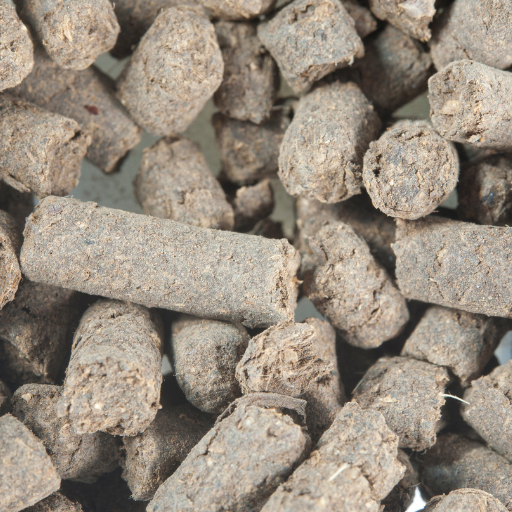
According to customer reviews and experiences, it is possible to understand how different products are performing and their impact on consumers. Normally, positive reviews concentrate on the advantages of a given product over others; in this case, the manure has been beneficial for plant growth. Conversely, some of these comments dwell on one major disadvantage – over-fertilization which results from improper application of chicken manure that leads to damage as discussed above. Additionally, common issues in consumer feedback can help enhance a product or its use instructions. Consequently, a careful examination of users’ opinions is essential for both buyers and manufacturers so they can make their goods more efficient and convenient.
How do consumer ratings on organic chicken dung differ?
Consumer ratings about organic chicken dung vary considerably regarding effectiveness, smelliness and user-friendliness. Many positive evaluations focus on the effectiveness of it as a natural fertilizer, praising its high nutrient concentration that improves soil fertility, thus leading to rapid growth of plants. Improved plant health and bigger harvests are commonly mentioned by reviewers who attribute this to the balanced release of nutrients contained in the composted chicken manure. However, other negative comments shun this product because a strong, awful smell emanates from it, which can be very disturbing, particularly when used within living places. There were also a few reports from users mentioning some difficulties encountered during usage, like proper handling, especially during burning hence, there need for precautionary measures, including composting before application into environs, which may lead to damaged vegetation due to bad management practices such as exposing them to direct sunlight thus burning them causing yellowing or wilt.
What are the most common complaints and accolades among gardeners?
Conversely, popular complaints among gardeners often revolve around three key areas: stink, nutrient balance, and potential contamination with various other substances. Stink is frequently encountered by farmers who said that it smelt worse when they decided to use it around their home area. They even pointed out that it is not suitable for the aquatic or human surroundings. Sufficient amounts of nitrogen in chicken manure make it a valuable composition to farmers. Consequently, farmers often report improved water infiltration rates, soil porosity, and boosted microbial activity, all contributing to more productive and healthier gardens. This naturalness of chicken dung is also usually hailed by those who practice farming since they love its eco-friendliness and sustainability.
What do gardeners like and dislike about using organic manure?
On the other hand, praises typically highlight the high nutrient content, the enhancement of soil structure, and the promotion of robust plant growth. Nitrogen (N), phosphorus (P), and potassium (K) elements are among those that this kind of manure contains thereby helping crop to grow well due to their important role in plants. As a result, many farmers have noticed reduced rates at which moisture escapes and more oxygen availability throughout their fields’ rhizosphere. That’s why they now experience active microorganisms in their gardens whenever they spread this matter directly. Moreover, organic characteristics concerning this specific type are always praised by these individuals who carry out farming activities because they perceive it as environmentally friendly and having sustainability effects supported by Gillette et al.
Reference sources
- The Poultry Site
- Source: The Combination of Chicken Manure and Alperujo Generates a Quality Fertilizer Without Bad Odors
- Summary: This study from the University of Córdoba illustrates how combining chicken manure with olive grove waste produces high-quality fertilizer without bad odors, supporting the environmental and practical feasibility of using chicken manure in organic fertilization.
- NCBI
- Source: How Safe is Chicken Litter for Land Application as an Organic Fertilizer
- Summary: This article examines the safety and environmental benefits of using chicken litter as an organic fertilizer, highlighting its cost-effectiveness and eco-friendly nature, confirming its practicality in agricultural practices.
- ScienceDirect
- Source: A Review on Treatment Processes of Chicken Manure
- Summary: This comprehensive review discusses various treatment processes for chicken manure, emphasizing the importance of processing to mitigate adverse environmental impacts. It validates the feasibility of using treated chicken manure as an organic fertilizer.
Frequently Asked Questions (FAQs)
Q: What is organic chicken manure fertilizer?
A: Organic chicken manure fertilizer is a nutrient-rich fertilizer made from the waste of poultry. It is used in organic gardening to enrich soil with essential nutrients such as nitrogen, phosphorus, and potassium.
Q: How is organic chicken manure processed for use in gardens?
A: The poultry manure is usually composted and sometimes pelletized to make it easier to handle and apply. The composting process helps to reduce the potential stink and pathogens, making it safe for plants and soil.
Q: What benefits does organic chicken manure fertilizer offer?
A: Organic chicken manure fertilizer offers several benefits, including being a slow-release source of nutrients, improving soil structure, and promoting beneficial microbe activity. It also helps support organic production by providing an all-natural alternative to chemical fertilizers.
Q: How do I apply organic chicken manure to my garden?
A: For general application, you can spread the manure evenly over your lawn and garden as a top dressing or mix it into the soil. When fertilizing trees and shrubs, apply it around the drip line, calculating the amount as per foot of branch diameter around the drip line.
Q: When is the best time to use organic chicken manure in gardening?
A: The best times to apply organic chicken manure fertilizer are in the spring and fall. These seasons allow the nutrients to integrate into the soil effectively and prepare plants for active growing periods.
Q: How does organic chicken manure compare to other types of manure?
A: Organic chicken manure is generally more nutrient-rich compared to other manures like cow manure. It contains higher levels of nitrogen, which is crucial for plant growth and maintaining a healthy green color of the foliage.
Q: Is organic chicken manure safe for all plants?
A: Yes, organic chicken manure is safe for most plants when used appropriately. It’s especially beneficial as a compost starter and for plants demanding high nutrient levels. Always follow recommended application rates to avoid over-fertilization.
Q: Are there any specific considerations for using pelletized chicken manure?
A: Pelletized chicken manure is easier to spread and handle, reducing the stink often associated with raw manure. It’s also a slow-release option that ensures nutrients are gradually made available to plants, reducing the risk of nutrient runoff.
Q: How do I know my chicken manure fertilizer is of good quality?
A: Good-quality organic chicken manure fertilizer should be OMRI listed, indicating it’s compliant with organic production standards. It should be well-composted, crumbly, and have a soil-like smell, without an overwhelming stink.






